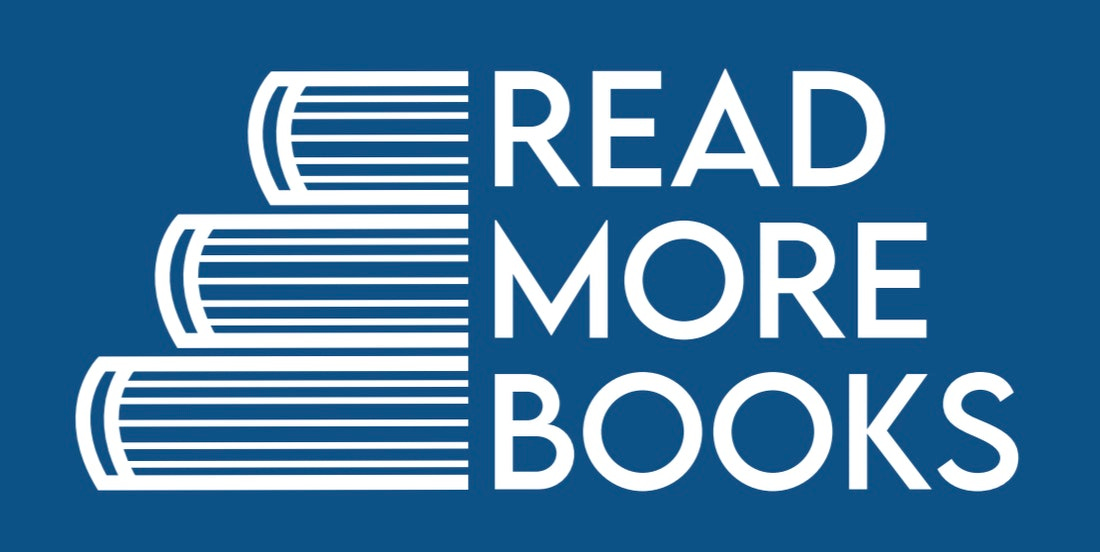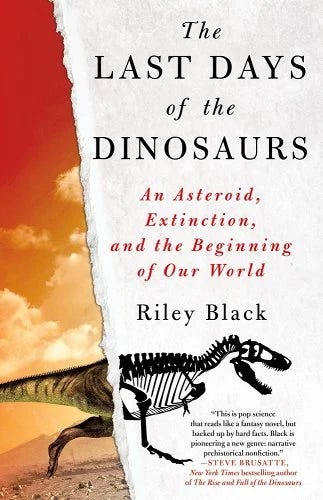📚 What to Read Next (No. 225): Origin Stories
Happy Friday, readers!
We love a good origin story, don’t we? We have an innate desire to understand how things came to be. Whether it’s an individual, a company, an entire society — beginnings are always intriguing.
Today’s newsletter features two brand new books all about origins. The first is about the entrepreneurial origins of the two companies that eventually merged to become PayPal. The second is technically about an ending (the extinction of the dinosaurs), but actually more about how our own species came to be in that aftermath.
What are your favorite origin stories? I’d love to hear, so drop me a line in the comments or shoot me an email back!
Let’s get to it.
The Founders: The Story of PayPal and the Entrepreneurs Who Shaped Silicon Valley by Jimmy Soni
Of all the Silicon Valley origin stories I’ve read, PayPal would initially seem to be the least dramatic of the bunch. WeWork, Uber, Facebook — those places were shitshows almost from the word go.
In Jimmy Soni’s new book, I learned that PayPal was indeed a bit tamer, but no less interesting.
Elon Musk, Peter Thiel, Reid Hoffman (LinkedIn founder), Max Levchin — the names are iconic in Silicon Valley, and those first two are obviously famous outside the valley too.
It started with quite an ambitious dream: revolutionize the financial industry and create one internet destination for your banking, investments, retirement, etc.
What ended up happening instead was that a second-thought feature — the ability to pay some human or some business with nothing but an email address — shaped the company and brought easy payments online . . . forever.
Though this book is probably for more of a niche audience than something like Billion Dollar Loser or Super Pumped (which read like actual soap operas), The Founders is foundational reading for anyone interested in the history of the internet and Silicon Valley.
Surprisingly, there were also a lot of interesting takeaways for my work — marketing insights, product development tidbits, and plenty of relational advice that was far more realistic and relevant than I’ve seen in other Silicon Valley tales.
(Quick aside: I posted some of these takeaways to our company forums and was delighted to hear from a handful of these early PayPal employees who now work at Automattic with me. The tech world is rather insular at times!)
The Founders is highly recommended for those with an interest in tech and Silicon Valley history — which, it should be noted, is also American cultural history.
The Last Days of the Dinosaurs: An Asteroid, Extinction, and the Beginning of Our World by Riley Black
Though most of us have some early childhood interest in dinosaurs, we tend to grow out of it pretty quickly. I was no different — though I could spell the names of a dozen dinos when I was 7 or 8 years old, that passion didn’t last long. By my teenage years, I had moved on and haven’t read a book about dinosaurs since (unless you count Jurassic Park and/or kids books).
So when I saw this title pop up in a list of new books, I thought, “Huh, would I still be interested in dinos if I read an adult, sciencey book about ‘em?”
Whether it was the subject matter or the fabulous, narrative-style writing, The Last Days of the Dinosaurs answered that question with a resounding yes!
We all know that a giant asteroid killed off the dinos about 65 million years ago. It’s become such a common fact that it’s lost some of the dramatic intensity.
As Black notes at the outset, the day the 7-mile-wide asteroid hit was, without a doubt, the worst day in our planet’s history. In the span of a few utterly cataclysmic days, millions of creatures — thousands of species — were wiped out for good.
There is no parallel.
After that, a new cycle of life began, leading all the way to right now.
The great strength of the book is Black’s narrative storytelling and epic framing of what happened to the dinosaurs. Though there are obviously some liberties taken in that storytelling, Black also points out what a tricky science the field of paleontology is — without educated guesses, we’d be nowhere. (To punch back at the critics, she also includes a long appendix in which she describes exactly where and why she took those liberties.)
The Last Days of the Dinosaurs is just the right length (just over 200 pages of text), always readable, and perfect for rekindling some of that childhood fascination with dinosaurs. There were a number of jaw-dropping moments where my reaction was along the lines of, “Shit, that’s crazy! The reality of dinosaurs is crazy, their extinction is crazy, and it’s crazy that all of this actually happened.” Quite fun.
That’s all for me this week! Thanks so much for the time and inbox space. I deeply appreciate it.
-Jeremy



